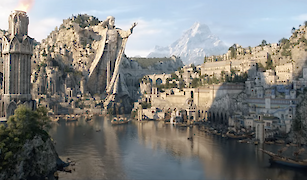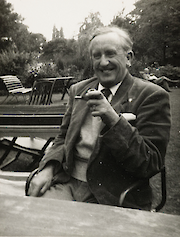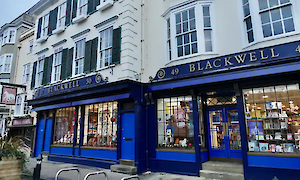As the new Lord of the Rings series gears up for its September launch on Amazon, the company finds itself navigating treacherous, if familiar, waters and has already triggered a fierce debate over race by introducing characters of color into JRR Tolkien’s fantasy world.…
It’s tempting to dismiss the complaining as the usual internet nerd rage. Similar disputes played out when actors of color started taking new major roles in Star Wars products. But the conflict is also about the rise of two kinds of media empire, not just one: there is Amazon, the crown jewel in the vast business empire of Jeff Bezos, the richest man in the world, and there is YouTube, a place for every dork who likes to complain about pop culture and whose darker corners are a frequent haunt of racism and bigotry.
One group is populated by people who can afford to buy the rights to The Lord of the Rings, and the other is populated by people for whom The Lord of the Rings is the second-best thing to the Bible, but for both, an incredible amount of money and influence is at stake. And Amazon is probably wary that its grand project could be vulnerable to attacks by aggrieved online superfans.…
In human terms, being the target of rightwing hate campaigns can be draining and depressing. in business terms, it can really mess with a marketing budget, and that kind of power is attractive to permanently aggrieved pop culture devotees.
The extremity of protest over the “unrealistic” presence of a Black dwarf princess feels silly, considering the stories themselves are about wizards and magic rings and the occasional dragon. But audiences, says Ebony Thomas, author of The Dark Fantastic and an associate professor at the University of Michigan, are not wrong when they say that Black characters seem like they just don’t belong in the notoriously white fantasy genre.
“The history of fantasy is racialized,” she says. “People are used to seeing fantasies and fairytales as all-white, particularly in faux-medieval or magical-medieval settings,” Thomas explains. “We’re taking them out of the dream space. We’re taking them out of how they imagined it could be, and so it feels off to them. So that’s why they’re saying, you know, ‘Who are these people? This is not what Tolkien intended! It’s not accurate!’”
Of course, if you’re willing to go back to the poems and legends that inspired Tolkien, you will definitely find characters who are not white.…




